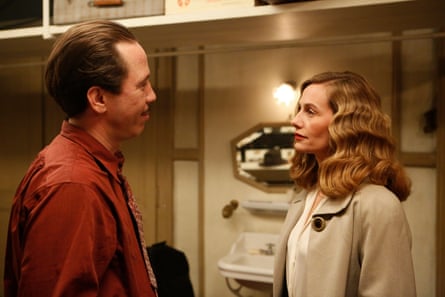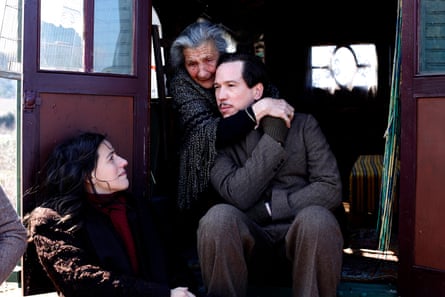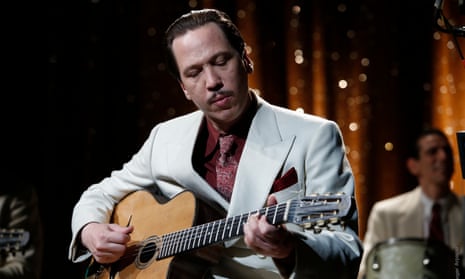The fire, the attack and the thrilling energy of Django Reinhardt’s music are disconcertingly absent from this high-minded and heavy-footed movie based on the 2013 novel Folles De Django by Alexis Salatko, a fictional take on Django’s wartime experiences as a Belgian-born Romani in occupied France; the screenplay is co-written by Salatko and the film’s first-time director, Étienne Comar – known until now as the writer-producer who worked on Of Gods and Men (2010).
Django electrified audiences with his jazz guitar genius, and was tolerated by Nazis who, despite their loathing of “monkey music”, saw that his celebrity and hugely popular concerts could be used to pacify and divert a defeated population.
After a racy and atmospheric opening in Paris – with icy German officials coming to the theatre dressing room to set up a German propaganda tour on Goebbels’ orders, and pedantically forbidding degenerate “blues” breaks or undisciplined syncopations – the film’s narrative tempo winds down into a long anticlimax. Django stages a seductively sensuous concert for Nazi officials near the Swiss border, to distract the guards and the top brass while resistance fighters smuggle people across the lake. It is oddly like The Sound of Music.

The film has some serious things to say about the Nazis’ assault on Romani peoples and Reinhardt’s frontline position in this war. In some ways, it is more candid about the artist’s awful collaborationist dilemma in Nazi-occupied France than La Vie En Rose (2007) with Marion Cotillard as Édith Piaf, which managed to fudge the issue. But there is something frustratingly subdued and constrained dramatically about this slow and unsyncopated film, which indulges in quite a few cliches about wartime Paris.
Reda Kateb gives a stolidly consistent performance as Django, the brilliant virtuoso and star who returned to wartime France from his international tour, unlike his great bandmate, violinist Stéphane Grappelli, who stayed in London – perhaps, as someone drolly puts it, because he likes the “climate”. Django is the classic artistic genius: wayward, inspired, uninterested in careerist convention. Just when he is due to go on stage, Django is idly fishing for catfish in the Seine and someone from the band has to go and find him to drag him back to the theatre.

Yet Django has fans in the German high command: thin-lipped philistines and reactionaries for the most part who only care about Django’s publicity value as a tame performer – not his music. This privileged position is partly brokered by a beautiful and evidently fictional French woman, Louise de Klerk (Cécile de France), who is Django’s groupie-lover and resistance liaison agent, setting up insurgencies and escapes while remaining sexually available to the Nazis. It is a more-than-slightly preposterous role for De France; her character is resented by Django’s wife, Naguine (played by the Hungarian folk-singer Bea Palya), and of course Louise is destined to be vengefully abused by a chilling Nazi, played in this instance by a typecast Alex Brendemühl.
Django’s escape from the Nazis’ clutches is a vanishing act that can partly be put down to his bohemian nomadism. He finds himself away from Paris in Thonon-les-Bains, where he reconnects with his Romani friends and discovers anew the chilling truth about the Nazis’ racist cruelty. He helps others to flee and impatiently settles in for an opportunity to do so himself. Waiting is part of the deal; the film has to reflect this. But the drama has long since been becalmed by a lack of real ideas about character development. There is, however, an interesting emphasis on Django as a composer and arranger – not simply an instinctive performer – and, affectingly, Comar includes official photos of the Romani people taken away in the Nazis’ genocidal round-ups.

Comments (…)
Sign in or create your Guardian account to join the discussion